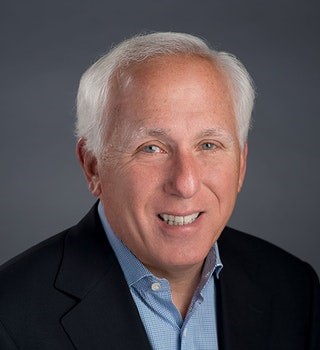Jon Held is one of the best advocates I have ever seen and heard argue about keeping the amount owed to policyholders down. He is a brilliant businessperson and has built an exceptional insurance consulting company regarding virtually every aspect of the insurance claims valuation process. I called his company a “surrogate” for claims adjusters and the insurance industry media took notice.
The Claims Journal noted this in, Growing Use of ‘Unlicensed Surrogates’ Worries Policyholder Attorney. The article noted the “tit for tat” between Jon Held and me over this issue:
Merlin specifically mentioned two companies that perform many of the functions traditionally done by licensed claims professionals: J.S. Held and Ladder Assist. In his blog, Merlin said J.S. Held is an ‘amazing advocate for the insurance industry.’
But during a telephone interview on Friday, Merlin said that good work isn’t good news for policyholders.
He said insurers ‘are providing the authority and certainly all the expertise determinations, to—essentially—people who aren’t licensed.’
‘It’s the job of adjusters to ensure that that they pay every single penny that (policyholders) are entitled to,’ Merlin said. Vendors ‘are not going to tell you all the benefits that you may have coming to you.’
For example, Merlin said a policyholder who suffered damage to a custom home may be entitled to have an architect oversee the contractor’s work. Policyholders whose homes are destroyed may be able to change the design of the structure by contributing their own funds to the reconstruction. Policyholders may not learn that they have that flexibility if the insurer sends out a vendor instead of a licensed adjuster, he said.
Jonathan Held, chief executive officer J.S. Held, said he appreciates Merlin’s plug for his company. The admiration is mutual. Held said Merlin is a friend.
Friend or foe, I am typically saying “no, no, no” to the low evaluations of damage made by JS Held. But this misses the point.
Insurance adjusters, whether company or independent, are supposed to make certain that policyholders are aware of all of their rights, are getting monies owed as quickly as possible, and softening the blow of the loss. Claims management is supposed to have a sufficient number of adjusters who, with adequate authority based on training, experience ,and trust, approve benefit monies so that the policyholder’s anticipation of prompt payment is delivered. That is good faith claims handling.
What I described is not what is happening. It is not JS Held’s fault. It is the “bean counters” fault. They make claims delay. They desire that claims expenses are reduced by not training claims adjusters so that they can have authority and can be trusted by their own peers.
I did not just make this up. Read the three-part series run by the insurance industry Claims Journal that made these articles about this topic in:
- Outsourcing Claims Functions
- Trend of Claims Outsourcing Driven by Finance Execs, New Managers
- Risks of Claims Outsourcing Include Vendor Control, Brain Drain
For policyholders, we just want the insurance industry to train people to take care of them and understand how the product is supposed to help the policyholder and provide prompt payment rather than a fight. The industry sells a product that they should understand requires them to promptly help the policyholders get all the benefits they deserve.
Does anybody disagree with my last sentence? If not, why is this not happening?
On another note, Steve Badger has had so much trouble with me that he wants an even bigger show stomping yours truly and has added Jon Held to his side while adding Jonathan Wilkofsky to my side as we debate trends in the appraisal process at the upcoming Windstorm Insurance Conference. This is a highlight fight to the death you do not want to miss, even if it turns out to be virtual.
We will discuss these topics shortly on Tuesday at 2 with Chip Merlin. I have two guests and hope you can join us. Here is the link for this afternoon’s session.
Thought For A Tuesday Afternoon
Creativity is a highfalutin word for the work I have to do between now and Tuesday.
—Ray Kroc





